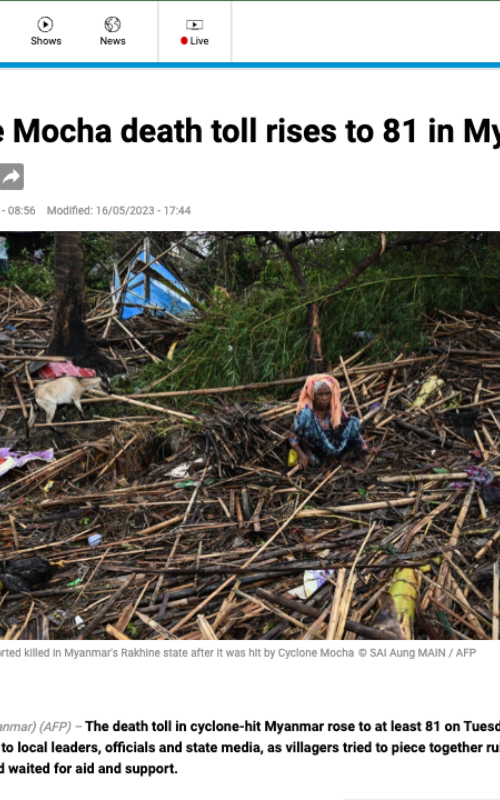Media coverage
Share

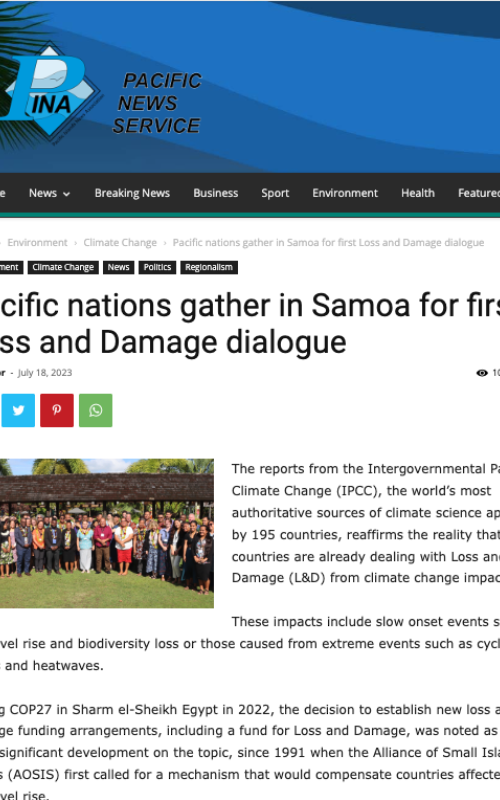
Pacific News Service
Pacific News Service covers the regions first loss and damage dialogue in Samoa, facilitated by the Secretariat of the Pacific Regional Environment Programme (SPREP) and Climate Analytics

The Guardian
“The idea that it’s a choice between our addiction to fossil fuels or working by candlelight is a gross misrepresentation of reality", Claire Fyson comments on claims made by Shell's CEO that reducing oil and gas production would be irresponsible.
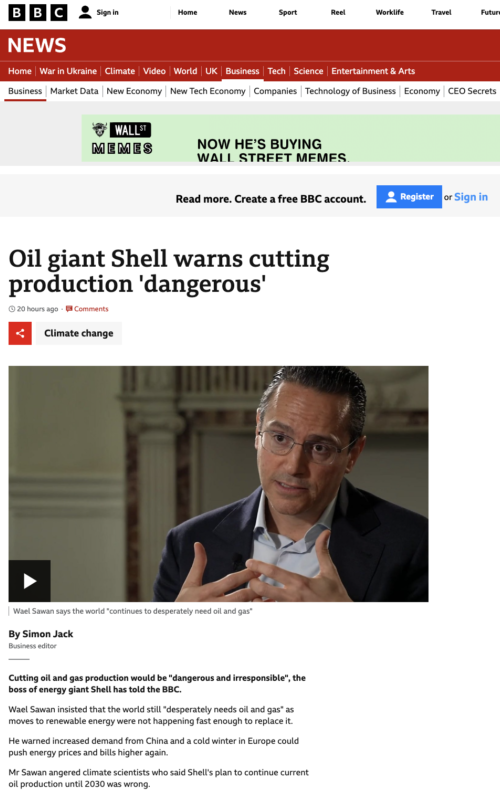
BBC
Claire Fyson, our Head of Climate Policy, is quoted in the BBC rebutting claims from Shell's CEO that the world still "desperately needs" oil and gas.

Axios
Risks of reduced crop yields occurring across major crop-producing regions are vastly underestimated in climate and crop model projections, a new study finds.

The Guardian
Bill Hare cites analysis from the IEA that new fossil fuel development is incompatible with limiting warming to 1.5°C.
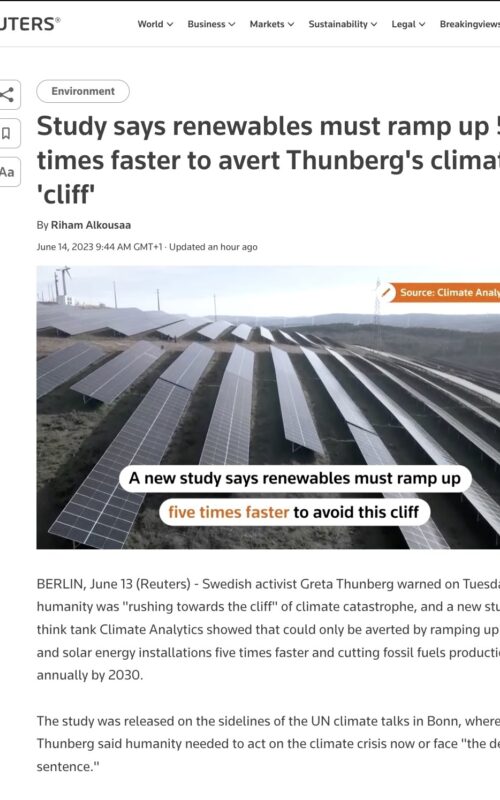
Reuters
Our analysis on 2030 targets for renewable energy and fossil fuel phase out covered by Reuters.
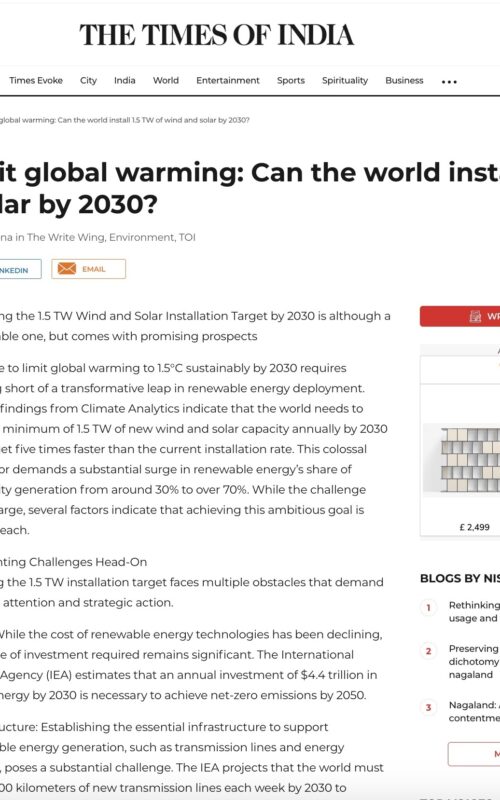
Times of India
New opinion in the Times of India explores the feasibility of the renewable energy target from our analysis.

The Maritime Executive
Our report on the LNG shipping being incompatible with a 1.5°C trajectory is covered by The Maritime Executive.

